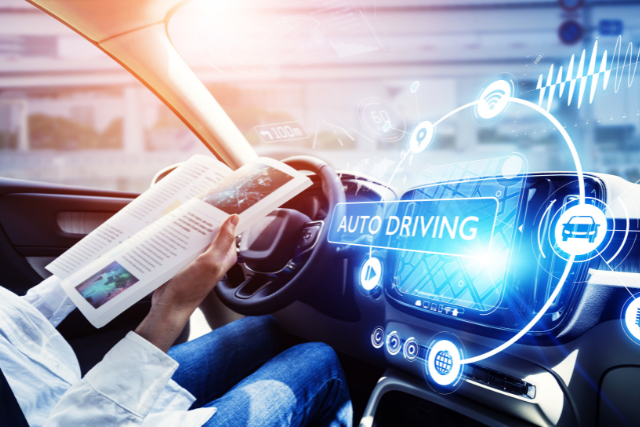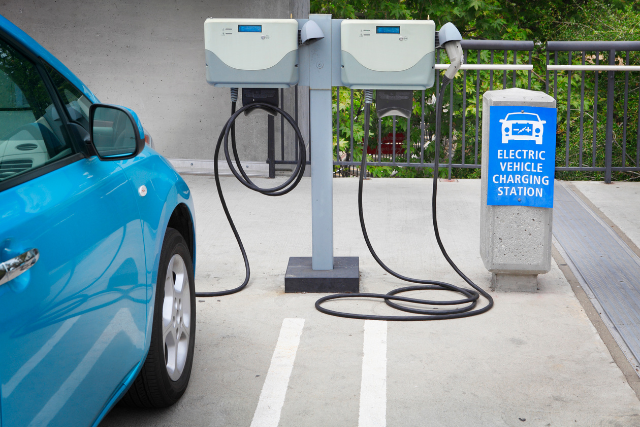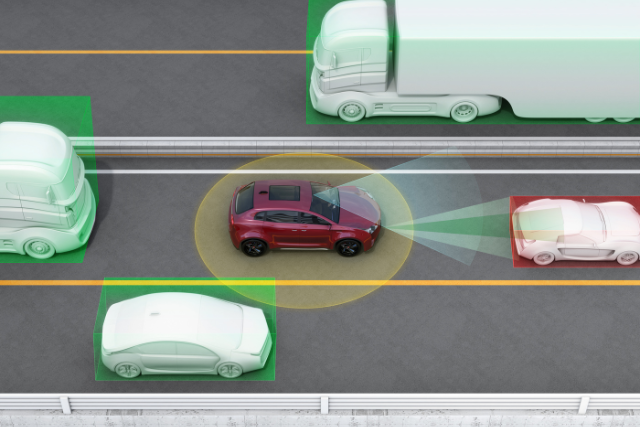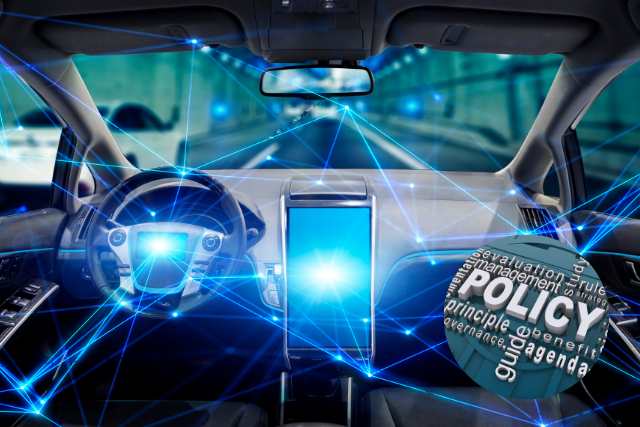Are you ready to witness the incredible transformation of the future?
Autonomous vehicle technology is revolutionizing how we commute, bringing enhanced safety, increased efficiency, and a complete overhaul of the transportation industry.
Imagine a world where accidents are reduced, traffic flows seamlessly, and your daily commute becomes a stress-free experience.
But the impact doesn’t stop there – society stands to benefit from this groundbreaking innovation.
Buckle up and prepare for a future where autonomous vehicles rule the roads.
Table of Contents
Enhanced Safety and Accident Reduction
Autonomous vehicle technology improves safety and reduces accidents. These vehicles are equipped with advanced sensors and artificial intelligence systems that can detect and respond to potential hazards on the road.
Autonomous vehicles significantly reduce the risk of collisions by eliminating human error, which is responsible for most accidents. They can react faster and more accurately to unexpected situations, such as sudden braking or swerving vehicles.
Self-driving cars can communicate with each other, creating a network that enhances safety by sharing real-time information about road conditions and potential dangers. With the advancement of self-driving cars, you can enjoy a safer and more secure driving experience.
Increased Efficiency and Traffic Flow
With autonomous vehicles, you can experience improved efficiency and traffic flow on the roads. By utilizing advanced technologies such as artificial intelligence and sensors, autonomous vehicles can communicate with each other and make real-time decisions to optimize traffic flow.
They can maintain consistent speeds, follow optimal routes, and avoid unnecessary stops or delays, resulting in smoother traffic patterns.
Autonomous vehicles can reduce the occurrence of traffic jams and congestion by minimizing human error and improving overall road coordination.
With increased efficiency, your commute will become faster and more predictable and lead to reduced fuel consumption and lower emissions, contributing to a more environmentally friendly transportation system.
Autonomous vehicles have the potential to revolutionize the way we travel, making our roads more efficient and reducing the frustrations of traffic congestion.

Transforming the Commute Experience
During your commute, autonomous vehicles will revolutionize your experience by providing a seamless and stress-free journey. Imagine stepping into a vehicle that takes care of all the driving, allowing you to relax, catch up on work, or enjoy the ride.
With autonomous technology, you won’t have to worry about navigating through traffic or dealing with road rage. Instead, you can use your time more efficiently and productively.
Autonomous vehicles will also improve safety, reducing the risk of accidents caused by human error. Communicating with other vehicles and infrastructure can optimize traffic flow and minimize congestion. This means less time spent stuck in traffic and more time for you to do the things you love.
Autonomous vehicles truly have the potential to transform your daily commute into a pleasant experience.
Impact on Transportation Industries
One major impact of autonomous vehicle technology on transportation industries is increased efficiency and cost-effectiveness.
With autonomous vehicles, transportation companies can optimize routes and schedules, reducing the time and fuel wasted in traffic congestion.
Autonomous vehicles can also operate 24/7, eliminating the need for driver breaks and increasing productivity.
This increased efficiency translates to cost savings for transportation companies, as they can reduce labour costs associated with drivers and increase vehicle utilization rates.
Furthermore, autonomous vehicles are equipped with advanced sensors and communication systems, allowing for real-time monitoring and proactive maintenance.
This reduces downtime and maintenance costs, further contributing to cost-effectiveness.
Potential Benefits for Society
Autonomous vehicle technology offers society numerous benefits, such as increased safety and convenience.
With self-driving cars, the potential for human error is greatly reduced, leading to a significant decrease in road accidents and fatalities.
This technology can also bring convenience to individuals, allowing them to multitask or relax during their commute.
Autonomous vehicles have the potential to increase accessibility for individuals with disabilities or limited mobility, providing them with greater independence and freedom of movement.
Furthermore, these vehicles can help to reduce traffic congestion and improve traffic flow by utilizing advanced algorithms and real-time data.
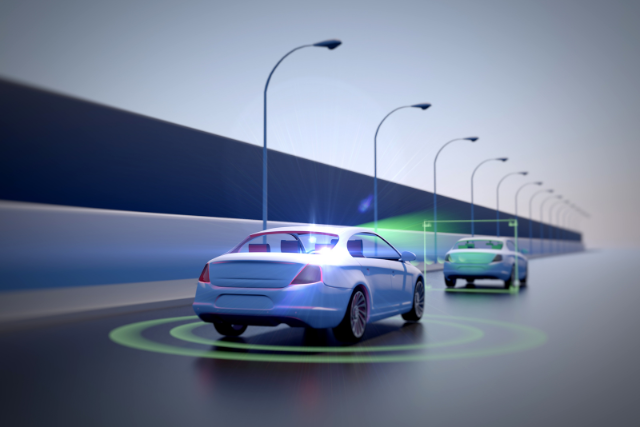
Frequently Asked Questions
What Are the Potential Ethical Implications of Autonomous Vehicles in Terms of Decision-Making During Accidents?
Regarding decision-making during accidents, autonomous vehicles raise potential ethical implications.
You must consider the choices these vehicles will make and their responsibility for protecting human lives.
How Will Autonomous Vehicles Address Cybersecurity Concerns and Protect Against Potential Hacking?
Autonomous vehicles will implement advanced encryption protocols to address cybersecurity concerns and protect against potential hacking.
Regular software updates will also be conducted to ensure that any vulnerabilities or weaknesses are addressed and patched.
In addition, these vehicles will feature multi-layered security systems to provide robust protection against unauthorized access and tampering.
These measures are crucial in ensuring the safety and integrity of your vehicle’s operations.
What Are the Major Challenges That Need to Be Overcome Before Autonomous Vehicles Can Be Widely Adopted?
Major challenges must be overcome before autonomous vehicles can be widely adopted.
These include:
- Perfecting the technology to ensure safety
- Addressing regulatory and legal concerns
- Gaining public trust in the reliability of self-driving cars.
Will Autonomous Vehicles Completely Eliminate the Need for Traditional Driver’s Licenses?
No, autonomous vehicles won’t eliminate the need for traditional driver’s licenses.
While they may reduce the need for individual licenses, some regulation and training will still be necessary.
How Will Autonomous Vehicles Impact the Job Market and Employment Opportunities in the Transportation Industry?
Autonomous vehicles will significantly impact the job market and employment opportunities in the transportation industry. They’ll likely lead to job losses for traditional drivers but create new vehicle maintenance and software development opportunities.
The introduction of autonomous vehicles will disrupt the traditional role of drivers, as these vehicles are designed to operate without human intervention. This means that jobs such as taxi, truck, and delivery drivers may become obsolete.
However, while there may be job losses in the driver sector, new employment opportunities in other areas will also emerge. For example, the maintenance of autonomous vehicles will become crucial, as there will still be a need for regular inspections, repairs, and updates to ensure their safe and efficient operation.
Additionally, the development and implementation of the software and technology behind autonomous vehicles will require skilled workers in fields like software engineering, data analysis, and artificial intelligence.
These professionals will be responsible for creating the algorithms and systems that drive autonomous vehicles and continuously improving their performance and safety.
Conclusion
Autonomous vehicle technology is revolutionizing the future by improving safety, increasing efficiency, and transforming the commute experience.
With the potential to reduce accidents and enhance traffic flow, these vehicles have the power to reshape transportation industries and benefit society as a whole.
Embracing this technology will undoubtedly lead to a safer and more efficient future of transportation.

